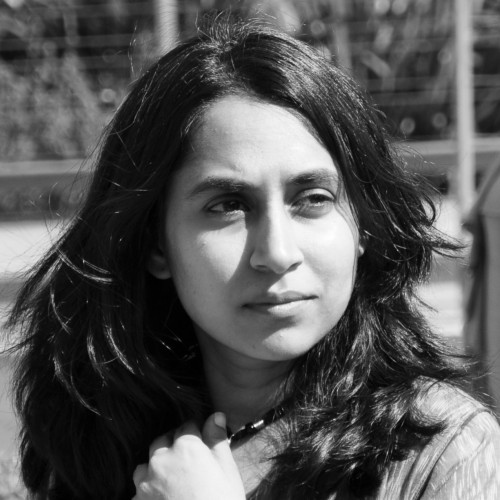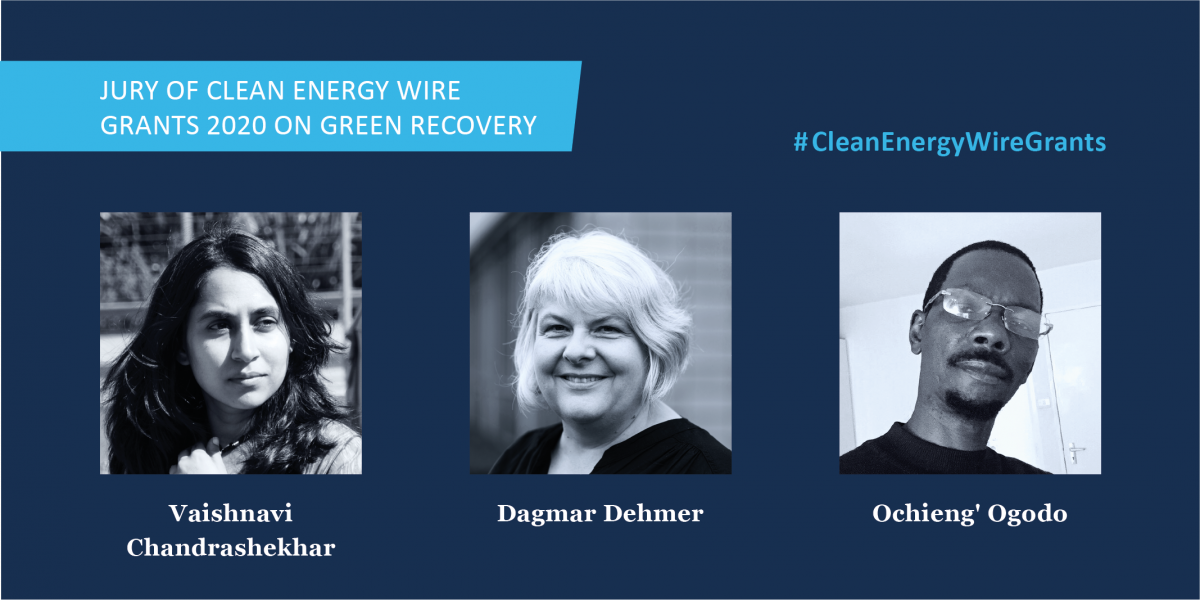Jury members for the CLEW cross-border grants share three tips on how to enter a successful pitch
Vaishnavi Chandrashekar, a reporter and editor for online, newspaper and magazine outlets in India and the US for almost 20 years and editorial consultant for The Times of India Mumbai; Dagmar Dehmer, award-winning journalist and now head of communications for BGE, the agency in the federal company for radioactive waste disposal BGE; and Ochieng’ Ogodo, Sub-Saharan Africa English Edition regional coordinator and editor for the Science and Development Network, will jointly select the top cross-border pitches of internationally relevant stories with a green recovery angle. Journalists can enter their work until the 1st of September 2020.
For this grants call, teams of journalists from a minimum of two different countries can enter their story pitches. We asked our jury members about the importance of cross-border journalism. Vaishnavi told us that “cross-border collaborations among journalists are important because issues — and corporates — transcend borders. Most journalists are limited by their access to local or national information and perspectives. Such projects are also great for individual journalists, broadening their exposure to perspectives, peers, and issues outside their country or region.”

“Such projects are also great for individual journalists, broadening their exposure to perspectives, peers, and issues outside their country or region.”
According to Ochieng’, “cross-border collaborative journalism provides essential practical skills for transnational reporting and encourages journalism practitioners to undertake their own collaborative projects. It defines the questions of our time in a globalised world.”
Dagmar added that “it is surprising how radical a language- and cultural barrier can be for information. Even in times of globalised social networks very often the views and values of regions of countries are not understood – even in their neighbourhood. Cross-border collaboration among journalists helps to bridge these gaps and helps to create a more common understanding of developments, for example in climate policies.”
When asked if they have tips for journalists applying for the grants, they had some important advice. Three pieces of advices by our jury members to consider before applying:
1. A focused idea may do better than a broad one
Journalists applying for this grant should be ambitious in their ideas and investigations. But they also need to think about whether the projects are achievable for their team.
2. Try to show the other side of the coin
Try to find a topic that gives your readers the possibility to see the other side of the coin of a topic. For example: Dig into the misunderstandings or outright rejection of positions and policies and give your readers a chance to understand why the reception is so different. What are the values or what is the rational of such conflicts? And does it really have to do with the policy you might write about? Be curious and dig deeper.
3. Identify potential sources and contacts beforehand
Identify potential research sources for your story, or elaborate upon contacts with experts in the area, in order to convince the judges that you are capable of tackling the subject and hit a homerun with them.
So, with these three tips in mind, wow the jury and apply for our call for cross-border grants!


